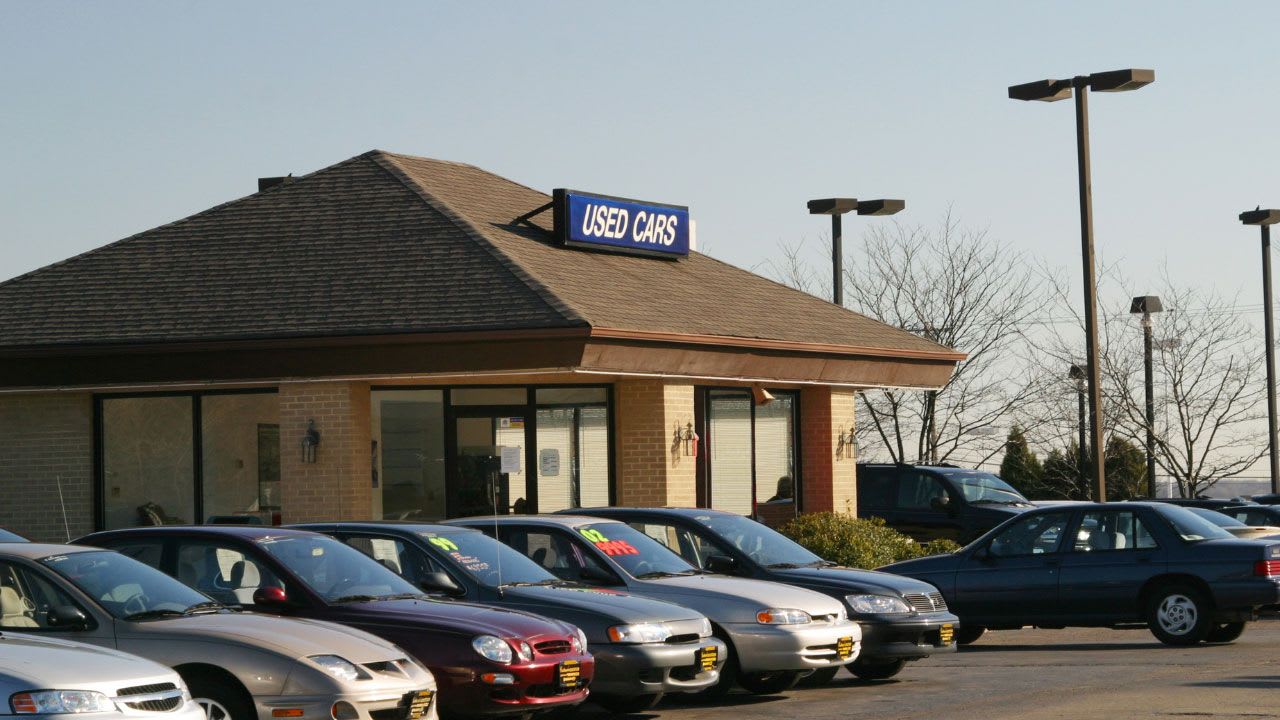
By John Watson
24 May 2023
Buying a Used Car with 100K Miles | Everything You Need To Know
When it comes to purchasing a used car, mileage is often a critical factor to consider. One common question that arises is whether a car with 100,000 miles is a lot or if it's a bad idea to buy a vehicle with such mileage. In this article, we will delve into the topic and provide you with all the information you need to make an informed decision when buying a used car with such an odometer reading. We'll explore the longevity of cars with 100K miles, the pros and cons, and whether it's worth buying one. Additionally, we'll discuss what constitutes good mileage for a used car.
Mileage serves as a significant indicator of a vehicle's wear and tear, reflecting the distance it has traveled throughout its lifespan. It can provide insights into the potential maintenance costs and overall condition of the car. However, mileage alone does not provide a complete picture, as the quality of the miles driven and the vehicle's maintenance history play crucial roles in determining its longevity and reliability.
With advancements in automotive technology, cars are now built to be more durable and reliable than ever before. This means that reaching the 100,000-mile mark is no longer the daunting milestone it once was. Modern vehicles are equipped with improved engines, transmissions, and components that can withstand higher mileage if properly maintained.
While 100,000 miles may have been considered a high mileage point in the past, it's essential to look beyond the number and consider other factors such as the vehicle's maintenance history, driving conditions, and the make and model's reliability. By taking these factors into account, you can make a more informed decision about whether buying a car with 100K miles is the right choice for you.
Is 100K Miles a Lot for a Car?
When evaluating the mileage on a used car, it's important to understand that the number of miles alone does not determine a vehicle's condition. However, 100,000 miles is generally considered to be a significant milestone for most cars. In the past, reaching this mileage was often seen as the point at which major repairs and maintenance became more frequent. However, advancements in automotive technology have improved the reliability and durability of modern vehicles.

Modern cars are built to last longer and are designed with improved engines, transmissions, and components. With regular maintenance and proper care, it is not uncommon for cars to go well beyond the 100,000-mile mark without major issues. Therefore, while 100K miles may have been a concern in the past, it is not necessarily a cause for alarm in today's automotive landscape.
Instead of focusing solely on the mileage, it is rather more important to consider the vehicle's maintenance history. A car that has received regular maintenance, including oil changes, fluid checks, and timely repairs, is more likely to remain reliable even with 100K miles. A well-maintained car with a comprehensive service history can be a better choice than a lower-mileage vehicle that has been neglected.
How Long Will a Car with 100K Miles Last?
The longevity of a car with 100,000 miles depends on several factors, including the make and model, maintenance history, driving conditions, the owner's care, the events it has been through during its life, and more. Generally, if a car has been properly maintained, it can easily last another 100,000 miles or even more. However, it's essential to understand that older vehicles may require more frequent repairs and maintenance as they accumulate mileage.
Regular maintenance, including scheduled service intervals, oil changes, filter replacements, and timely repairs, is crucial to extending the life of a high-mileage car. Additionally, proper care such as avoiding aggressive driving, maintaining a reasonable load, and adhering to recommended maintenance guidelines can significantly impact the longevity of the vehicle.
Some car manufacturers and models are known for their durability and longevity. Before purchasing a used car, it's beneficial to research the reliability ratings and reviews of the specific make and model you are interested in buying. This information can provide insights into the potential lifespan of the vehicle and the common issues associated with it.
Also Check: How To Sell A Car On Craigslist Without Getting Scammed
Other factors to keep in mind
Deciding whether to buy a car with 100,000 miles depends on various factors, including your budget, intended use, and personal preferences. While high-mileage cars can come with potential risks, they also offer several advantages.

Affordability
Used cars with 100K miles are generally more affordable than low-mileage counterparts. This affordability allows buyers to consider models they might not have been able to afford otherwise. If you're looking for a reliable mode of transportation without breaking the bank, a well-maintained high-mileage car can be a suitable option.
Negotiating Power
When purchasing a used car with 100,000 miles, you have more room for negotiation compared to lower-mileage vehicles. The perceived higher risk associated with higher mileage often gives buyers leverage in bargaining for a lower price or additional benefits such as extended warranties or service packages.
Cost of Ownership
When evaluating a high-mileage car, it's also crucial to consider the potential cost of ownership beyond the purchase price. Higher mileage vehicles may require more frequent repairs and maintenance compared to lower-mileage cars. Parts and labor costs can add up over time, so it's important to budget for ongoing maintenance and potential repairs.
Additionally, older vehicles may have higher insurance premiums or be subject to more stringent emissions regulations, which could impact your overall ownership costs. Considering the long-term expenses associated with a high-mileage car can help you determine if it aligns with your budget and financial goals.
Conclusion
Buying a used car with 100K miles can be a viable option if you consider important factors such as maintenance history, make and model reliability, and your specific needs and budget. While mileage alone should not be the sole determining factor, it is essential to thoroughly inspect the vehicle, request a comprehensive service history, and potentially have a trusted mechanic evaluate it before making a purchase. By doing your due diligence and making an informed decision, you can find a high-mileage car that meets your requirements and offers reliable transportation for years to come.